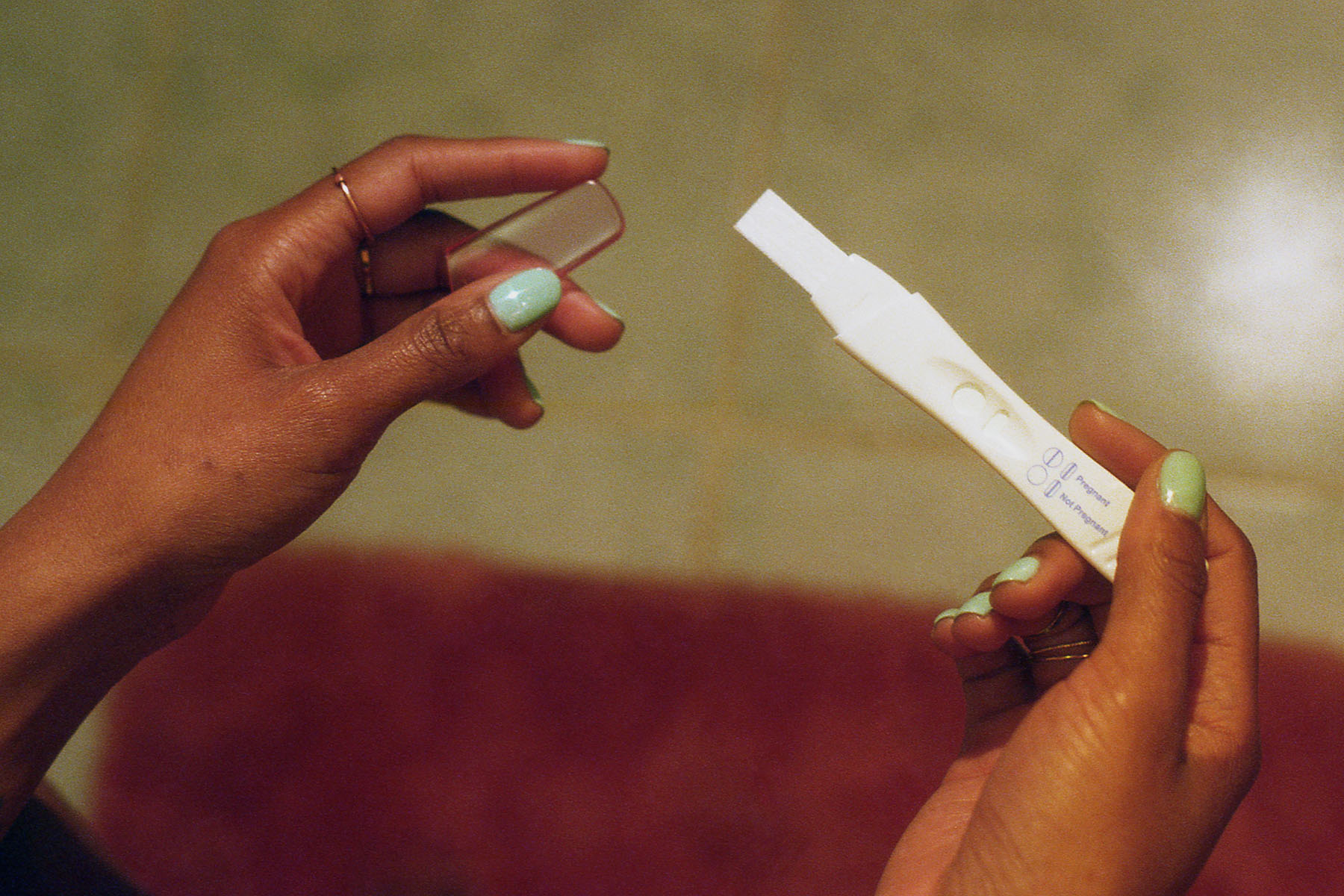Four states restrict divorce during pregnancy, and, with a decision by the Arizona Supreme Court this week, now all four also have near-total bans on abortion.
It’s a combination that can be fatal, say experts on domestic violence.
A study recently published in the Journal of the American College of Surgeons found that states that restricted abortion access from 2018 to 2020 had a 75 percent higher rate of peripartum homicide — people who were killed while pregnant or in their first year after giving birth — than states without restrictions. The same trend did not hold in homicide rates for men. Firearms were used in 63 percent of all peripartum homicides. These statistics underscore the connection between reproductive rights, domestic violence and gun violence in the United States.
Arizona’s abortion law, passed in 1864, was upheld by the Arizona Supreme Court on Tuesday. It had been blocked for years by the U.S. Supreme Court’s 1973 decision in Roe v. Wade but was brought back into the spotlight after its overturn in 2022. State legislators tried Wednesday to repeal the law ,but were blocked by Republican leadership.
While there is no official statute banning divorce during pregnancy in Arizona, the state tends to not allow divorce proceedings involving a pregnant person to be finalized until the baby is born. Though protective orders can be issued that might allow someone in a domestic violence situation to get away from an abusive partner, the situation regarding pregnancy and divorce in the state can result in confusion and chaos — and real harm. In Missouri, Texas, and Arkansas, state laws bar or deter judges from finalizing divorces while a person is pregnant.
The implications of the Arizona ruling, seen through the lens of gender-based violence, “truly takes our breath away,” said Crystal Justice, the chief external affairs officer at the National Domestic Violence Hotline. “We are extremely fearful for what these harmful restrictions on abortion will do to those who can become pregnant and are either experiencing domestic violence or at risk for domestic violence. These laws are nothing short of cruel and they will embolden abusive partners to further isolate and abuse — and could cost survivors their lives.”
Justice said calls to The Hotline about reproductive coercion have gone up 98 percent since the Dobbs ruling. In Arizona specifically, even before this week’s ruling, those numbers have doubled, she said.
Homicide is the leading cause of death for pregnant and postpartum people in the United States; between 3 and 9 percent of American women will experience domestic violence during pregnancy. The majority of women who are abused before becoming pregnant continue to experience abuse during pregnancy.
“An abusive partner oftentimes views pregnancy as a loss of control, that their victim will now not be solely dedicated to them but will have somebody else that diverts their attention away from the abusive partner,” Justice said.
Barring pregnant people’s ability to leave a marriage when pregnant while also banning abortion seems likely to further elevate the risk of death, she said.
“Not only is the state now saying with this harmful and antiquated law that you must stay pregnant against your will,” she said, but “during that pregnancy, the state is not going to let you legally divorce your abusive partner. I can’t think of anything more outrageous or cruel.”
Justice said this situation underscores the reality of what happens when reproductive rights are left to the states, a move supported by former president and presumptive Republican presidential nominee Donald Trump this week. “With the erosion of Roe v. Wade, what we have done is sow chaos and confusion. And if you think about people who are in a domestic violence situation, that is compounded.”
Amanda Jean Stevenson, an assistant professor of sociology at the University of Colorado-Boulder and a demographer who studies the impacts of and responses to abortion policy, stressed that when looking at the overlapping restrictions on pregnant people in Arizona, it’s important to remember the documented risks that come with being denied a wanted abortion.
“We know that they then face greater socioeconomic disadvantages, poor physical health, greater likelihood of staying in abusive relationships and worse outcomes for children who are already born,” Stevenson said.
There is not evidence about the impact of divorce restrictions on health and social outcomes, but there is lots of evidence that making getting a divorce easier can improve people’s lives — particularly for women.
The ability to freely make decisions about both pregnancy and marriage are related, Stevenson said, not simply because they both often involve women, “but also because they’re both about people’s ability to make decisions about their own lives.” Looking at Arizona, she sees a place where two significant choices are being constrained.
That dynamic means it’s critical to understand the factors behind all peripartum deaths, Stevenson said. She believes it’s important to understand the link between domestic violence and abortion bans, that forcing a person to stay pregnant or stay married can lead to death — and that these two factors can have a compounding effect.
“Can pregnancy cause deaths by forcibly exposing them to violence or is it that the only way that pregnancy can cause people’s deaths is by increasing the volume of their cardiovascular system by 40 percent and thereby exposing them to greater risk for cardiovascular outcomes?” she said. “The question is where you believe that there’s a causal process that is social or do you only believe in biological causality. And that is a political question.”
In states like Arizona that now effectively restrict divorce during pregnancy and also ban abortion, Justice said survivors of domestic violence face assaults on their individual rights at every turn.
“Their autonomy is actively being taken away by their abusive partner, their ability to control their own bodies and lives are actively being taken away by their abusive partner. And now we have a state law coming in and doing the very same thing,” she said.







